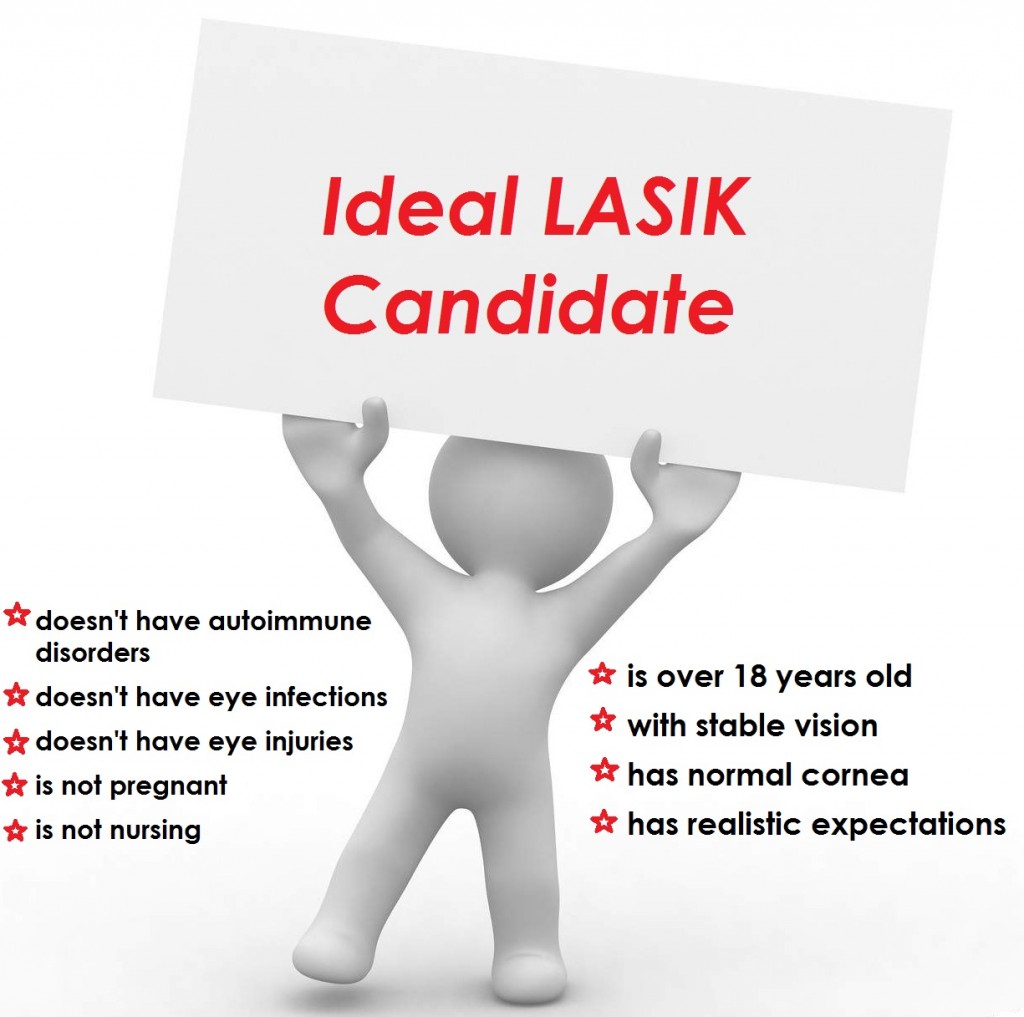In order to have a successful LASIK or PRK procedure the patient must be deemed an excellent candidate for the vision procedure.
If a patient is not a good candidate for the LASIK or PRK procedure than there is a higher risk for post procedure complications and that patient will be less likely to experience all of the positive results and visual benefits of having the LASIK or PRK procedure. The best way to determine if you are an excellent candidate for the LASIK or PRK surgery is to find a Board certified surgeon who specializes in performing the LASIK and PRK procedures on a regular basis. There are a few risk factors that will disqualify someone from being able to proceed with having LASIK or PRK surgery.
Patients who are under18 years of age will most likely be disqualified from having LASIK eye surgery. Typically the reason for this is that those patients who are younger than 18 years old do not have a stable prescription because their refractive errors usually do not stabilize before the age of 21 so their vision continues to change. Another reason to deem you a non-candidate for the procedure is that women who are pregnant, nursing or planning on becoming pregnant in the near future should wait to have LASIK or PRK procedure due to the fact that the hormonal changes that go along with pregnancy, childbirth and nursing can affect visual acuity will disqualify you from being a good candidate. In order to be an excellent candidate for the LASIK or PRK procedure the patient must have a refractive error and a glasses or contact lens prescription that has been stable for at least one year. For those patients who are pregnant or nursing, you may proceed with your LASIK or PRK procedure on you have finished nursing and your prescription is stable.
Another common factor that could disqualify a patient from being a good LASIK candidate is having thin corneas. Your eye care provider will measure your corneal thickness and determine if you have an adequate amount of corneal thickness for LASIK or PRK surgery. Performing LASIK on thin corneas results in a higher rate of complications. In most cases, those patients with thin corneas find that the PRK procedure is a is a better option for vision correction in place of LASIK.
Occasionally a patient may have a corneal scar from extended use of contact lens wear or a previous eye injury. The corneal scarring can be a factor but with a thorough eye exam your doctor can determine what is best for you.




